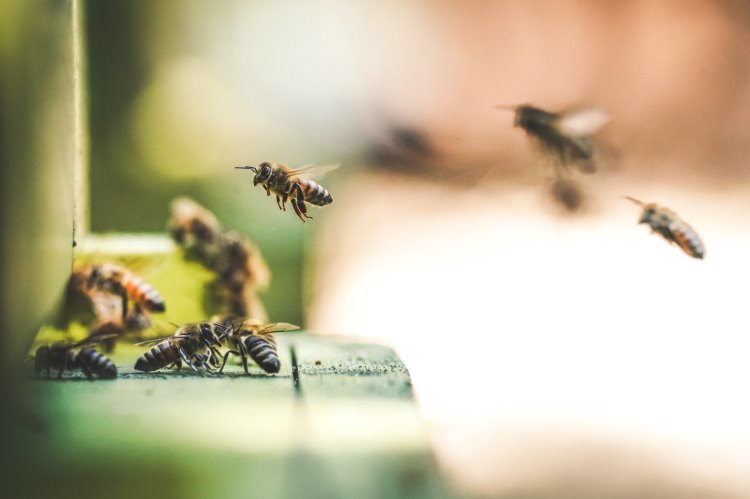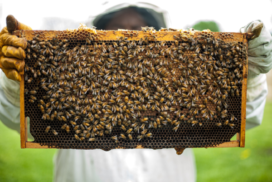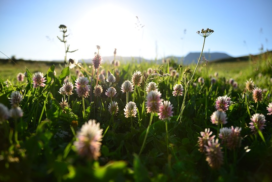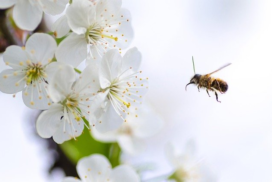Managed pollinators such as honey bees
Managed pollinators can supplement crop pollination by wild pollinators. The most common managed pollinators include bumblebees, solitary bees, and honey bees. The relative effectiveness of these species and economic viability will depend on the crop in question. Solitary bees such as the mason bee emerge in spring and can provide excellent pollination services to spring flowering fruits such as apple. Bumblebee colonies are typically at their highest densities in summer making them effective pollinators of soft fruits such as raspberries and strawberries. Imported pollinators can carry parasites and disease so it is important to buy managed pollinators from reputable companies.
Hiring honey bee colonies to pollinate crops is a common practice in the US but is relatively rare in the UK. With insect pollinators contributing up to 20% of yield in oilseed rape and up to 80% in apples, supplementing wild pollinators with managed honey bees could be financially viable.

Honey bees hives have approximately 30,000/40,000 workers in spring and are therefore great at supplementing pollination in spring crops when populations of wild pollinators are typically low (e.g. bumblebee queens have just emerged from overwintering and have not yet established a colony). Introducing honey bee hives for pollination services at the correct density and time can help to enhance both yield and quality of a range of insect-pollinated crops.
Crops such as oilseed rape can also provide the first crop of honey for commercial beekeepers reducing the cost of hiring bees and making co-operation between beekeepers and farmers a win-win for both parties.
The UK has a thriving bee farming industry and the Bee Farmer’s Association has a dedicated Pollination Secretary to help bring beekeepers and farmers together. The Bee Farmer’s Association can also recommend on the optimum number of beehives per hectare for specific crops.
Relying on a single managed species to pollinate crops is potentially a risky strategy. To ensure that pollination services are resilient to environmental change and extreme weather conditions managed pollinators should be used in conjunction with methods that help to boost populations of wild pollinators.
Are you a new beekeeper, or are you thinking about keeping bees?
Beekeeping is a rising hobby and enterprise in Scotland, with around 2000 hobby beekeepers who operate typically one to a dozen hives, and about 25 commercial and 50 semi-commercial bee farmers who manage up to several hundred hives, the interest in beekeeping is gaining more and more importance in Scottish land use.
Find out more about where to begin and how to improve the local habitat for bees.
Sign up to the FAS newsletter
Receive updates on news, events and publications from Scotland’s Farm Advisory Service



